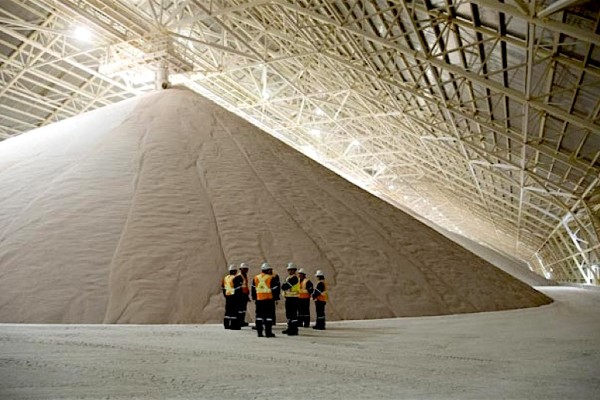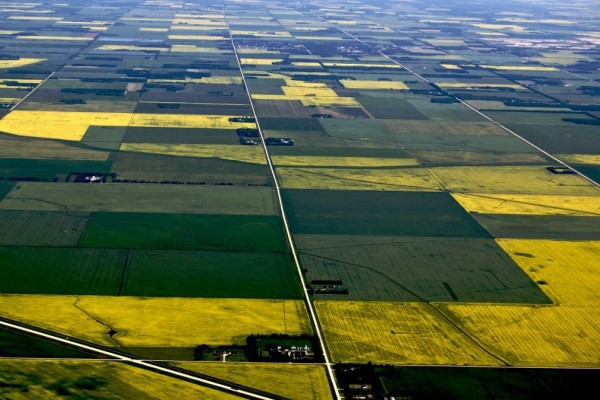-

The case for smashing Big Alcohol and reclaiming working class joy
Despite the ubiquity of a legal and safer supply of alcohol, beverage alcohol contributes to the deaths of some three million people around the world every single year via traumatic injuries, chronic diseases, self-harm, cancers, and alcohol use disorders, including alcohol dependency. Countless more people live with alcohol-related diseases, chronic pains, mental health issues, and various disabilities.
-

Prairies ramp up potash production amid Russia sanctions blowback
Fertilizer prices are extremely high, contributing to the ongoing global food crisis that has worsened in the fallout of the Russian invasion of Ukraine and the short-sighted imposition of sanctions by Western countries. In particular, production of potash has been severely impacted by the war in Ukraine and the West’s stubborn aversion to negotiation and compromise in eastern Europe.
-

Federal agency rules ‘Product of Israel’ labels violate Canadian law
In 2017, Dr. David Kattenburg filed a complaint against two wines made in the Israeli, West Bank settlements of Psagot and Shiloh. Dr. Kattenburg argued that, because those settlements are situated on Occupied Palestinian Territory in violation of the Fourth Geneva Convention, the wines produced in those settlements were falsely labelled as “Product of Israel.”
-

Canada is facing a dangerous food insecurity crisis
Canada’s food crisis is the result of a settler-colonial capitalism system which deprives a disproportionate number of Indigenous people of access to healthy diets, while simultaneously enforcing brutal class-based rule that impacts all races and sectors of the economy, thereby draining Canadians of their earned incomes and condemning many to early deaths caused by hunger.
-

Yes, you should just delete your apps
The only thing certain about the future of third-party delivery is that we cannot predict the next steps from these companies. But it’s a corner of the restaurant industry where we can take simple, direct action through our choices. For diners who love their city’s restaurants and want to see them survive, to make dining choices that put money directly in the pockets of restaurants, there is something we can do.
-

Time for craft brewery workers to organize
It is imperative that the impetus created by the public response to the sharing of allegations of sexual harassment, abuse, and discrimination within the craft brewing industry builds into an enduring movement that extends beyond the current moment. The possibility for a necessary shift away from a toxic workplace culture comes from the increased support and solidarity that a labour organization or union can provide.
-

How Canada failed its farmers and agri-producers
Private control over Canada’s agricultural sector now extends well beyond farms and into the food processing and retail space, effectively securing policy and regulatory influence along the supply and value chain. The harms perpetuated by this model are having grave consequences, expanding the power of corporate players at the expense of local producers.
-

Everyone eats: Community partnerships for addressing local food insecurity
While Statistics Canada’s most recently published data on poverty show that the official poverty rate is trending downward, the number of households reporting food insecurity actually increased between 2012 and 2018. The household food insecurity crisis, obscured by recent Statistics Canada figures, is also exacerbated by the pandemic and continues to worsen. This is unacceptable.
-

Agribusiness drives severe decline of essential insects
Insects keep the planet’s ecological system running, and ensure our food supply—75 percent of our most important crops depend on pollination by insects. Insects also improve soil quality and reduce plant pests by decomposing manure and dead plant matter. The Insect Atlas shows that insect species and pollinators are in severe decline because of pesticide-dependent industrial farming.
-

‘Either you are fighting to eliminate exploitation or not’: a leftist critique of the Green New Deal
Canadian Dimension spoke with Max Ajl, an associated researcher at the Tunisian Observatory for Food Sovereignty and the Environment, about his critiques of the Green New Deal, its relationship to capitalism, colonialism, and imperialism, and examples of struggles fighting for climate justice, food sovereignty, and self-determination.



